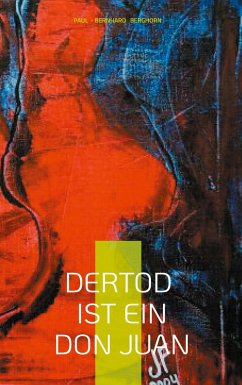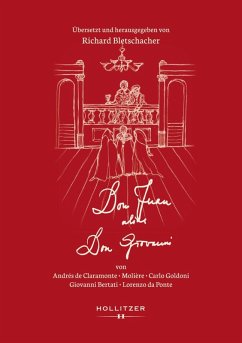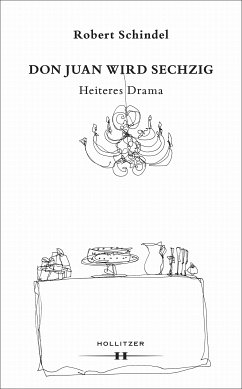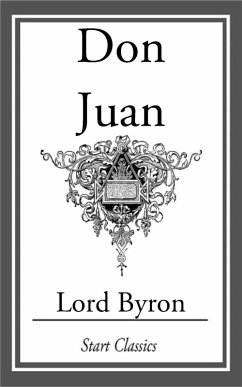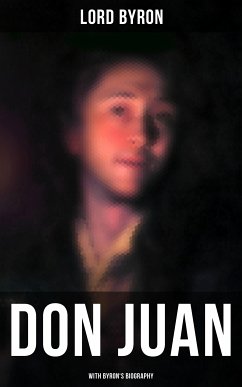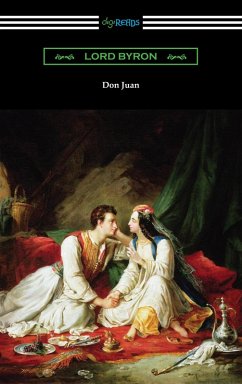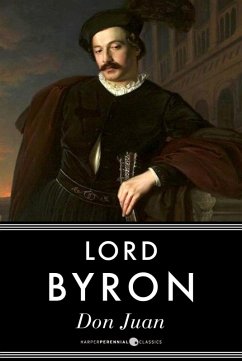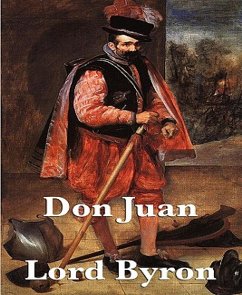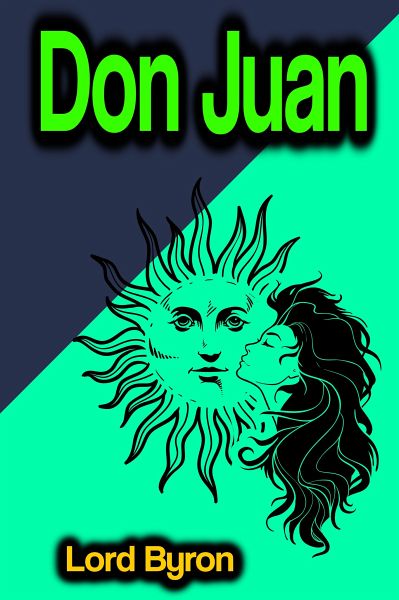
Don Juan (eBook, ePUB)

PAYBACK Punkte
0 °P sammeln!
Don Juan Lord Byron - Don Juan is a satiric poem by Lord Byron, based on the legend of Don Juan, which Byron reverses, portraying Juan not as a womanizer but as someone easily seduced by women. It is a variation on the epic form. Byron himself called it an "Epic Satire". Modern critics generally consider it Byron's masterpiece. The poem is in eight line iambic pentameter with the rhyme scheme ab ab ab cc often the last rhyming couplet is used for a humor comic line or humorous bathos. This rhyme scheme is known as ottava rima. In Italian, because of the common rhymed endings, the effect of ott...
Don Juan Lord Byron - Don Juan is a satiric poem by Lord Byron, based on the legend of Don Juan, which Byron reverses, portraying Juan not as a womanizer but as someone easily seduced by women. It is a variation on the epic form. Byron himself called it an "Epic Satire". Modern critics generally consider it Byron's masterpiece. The poem is in eight line iambic pentameter with the rhyme scheme ab ab ab cc often the last rhyming couplet is used for a humor comic line or humorous bathos. This rhyme scheme is known as ottava rima. In Italian, because of the common rhymed endings, the effect of ottava rima is often highly comedic or highly tragic. Because of its few rhymed endings, the effect of ottava rima in English is often comic, and Byron chose it for this reason.Although the various iterations of the Don Juan myth show some variation, the basic storyline remains the same. Starting with Tirso's work, Don Juan is portrayed as a wealthy, seductive libertine who devotes his life to seducing women, taking great pride in his ability to seduce women of all ages and stations in life. His life is also punctuated with violence and gambling, and in many interpretations (Tirso, Espronceda, Zorrilla), he kills Don Gonzalo, the father of a girl he has seduced, Doña Ana. This leads to the famous last supper scene, whereby Don Juan invites the dead father to dinner. The ending depends on which version of the legend one is reading. Tirso's original play was meant as religious parable against Don Juan's sinful ways, and ends with his death, having been denied salvation by God. Other authors and playwrights would interpret the ending in their own fashion. Espronceda's Don Felix walks into hell and to his death of his own volition, whereas Zorrilla's Don Juan asks for, and receives, a divine pardon. The figure of Don Juan has inspired many modern interpretations.
Dieser Download kann aus rechtlichen Gründen nur mit Rechnungsadresse in A, B, BG, CY, CZ, D, DK, EW, E, FIN, F, GR, H, IRL, I, LT, L, LR, M, NL, PL, P, R, S, SLO, SK ausgeliefert werden.




